|
Books Should Be Free Loyal Books Free Public Domain Audiobooks & eBook Downloads |
|
|
Books Should Be Free Loyal Books Free Public Domain Audiobooks & eBook Downloads |
|
Top Authors |
|---|
|
Book type:
Sort by:
|
By: Anthony Trollope (1815-1882) | |
|---|---|
 Can You Forgive Her?
Can You Forgive Her?
The first book in the political Palliser series, the novel deals with parliamentary politics, while concurrently devoting its pages to much more intricate issues. Presenting three parallel stories, the parliamentary novel draws its attention to three contrasting young women, who are beset with arduous decisions concerning courtship and marriage. Additionally, the novel covers topics including women in conventional society and their discernment, while illustrating the tentative stages of marriage with all the attributes of sacrifice, compromise and temptation... | |
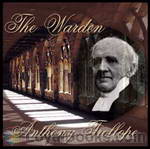 The Warden
The Warden
Published in 1855, The Warden is the first installment in Trollope’s highly acclaimed series Chronicles of Barsetshire, and offers an enlightening insight into the life of the Victorian clergy, its gentry, politics, and social settings. The novel focuses on Mr. Harding, an elderly clergyman who finds himself in the center of a vehement dispute over his questionable position as warden of Hiram’s Hospital. Exploring various themes including human nature, morals, reform, and manners, The Warden is a perfect representation of the structure of Victorian society... | |
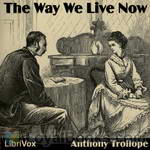 The Way We Live Now
The Way We Live Now
The Way We Live Now is a scathing satirical novel published in London in 1875 by Anthony Trollope, after a popular serialization. It was regarded by many of Trollope’s contemporaries as his finest work. One of his longest novels (it contains a hundred chapters), The Way We Live Now is particularly rich in sub-plot. It was inspired by the financial scandals of the early 1870s, and lashes at the pervading dishonesty of the age, commercial, political, moral, and intellectual. It is one of the last memorable Victorian novels to have been published in monthly parts. | |
 The Eustace Diamonds
The Eustace Diamonds
Lizzie Greystock, a fortune-hunter who ensnares the sickly, dissipated Sir Florian Eustace, is soon left a very wealthy widow and mother. While clever and beautiful, Lizzie has several character flaws; the greatest of these is an almost pathological delight in lying, even when it cannot benefit her. Before he dies, the disillusioned Sir Florian discovers all this, but does not think to change the generous terms of his will. The diamonds of the book’s title are a necklace, a Eustace family heirloom that Sir Florian gave to Lizzie to wear... | |
 Phineas Finn
Phineas Finn
Phineas Finn is the sequel to “Can you Forgive Her?” and the second novel in Trollope’s Palliser series. The eponymous hero is a young Irishman who becomes a member of the English parliament. Trollope aspired to become an M.P. himself, and he ably describes the workings of the English political scene. There is also a love interest, as the somewhat inconstant Phineas courts three different women: his Irish sweetheart, Mary Flood Jones; Lady Laura Standish, the daughter of a prominent Whig politician; and a lovely heiress, Violet Effingham. | |
 Ayala's Angel
Ayala's Angel
Lucy and Ayala Dormer are left penniless by the death of their parents. Ayala is taken in by their rich aunt Lady Tringle and Lucy by their poor uncle Mr Dosett. The girls find it hard to get used to their new surroundings. Lucy becomes engaged to one of her father’s artist friends but they are too poor to marry. Three different men fall in love with Ayala but none live up to her ideal of the perfect man. Will Lucy be able to marry her sweetheart and will Ayala find her ‘Angel of Light’? For the answers to these and many other questions, read this book. | |
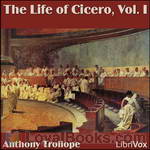 The Life of Cicero
The Life of Cicero
Marcus Tullius Cicero (106-43BC) was an orator, statesman, philosopher and prolific correspondent, who rose as a ‘new man’ in Rome in the turbulent last years of its republican government. Anthony Trollope, best known as a novelist, admired Cicero greatly and wrote this biography late in life in order to argue his virtues against authors who had granted him literary greatness but questioned his strength as a politician and as a man. He takes a personal approach, affording us an insight into his own mind and times as well as those of his subject... | |
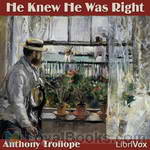 He Knew He Was Right
He Knew He Was Right
He Knew He Was Right is a 1869 novel written by Anthony Trollope which describes the failure of a marriage caused by the unreasonable jealousy of a husband exacerbated by the stubbornness of a wilful wife. As is common with Trollope’s works, there are also several substantial subplots. Trollope considered this work to be a failure; he viewed the main character as unsympathetic, and the secondary characters and plots much more lively and interesting. | |
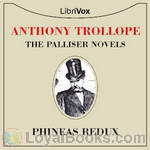 Phineas Redux
Phineas Redux
Phineas Redux is the fourth in Trollope’s series of six Palliser novels. At the end of Phineas Finn, the second novel in the series, Phineas had to return to Ireland to marry his childhood sweetheart, who was expecting their child. As Phineas Redux opens, Phineas is working as a Poorhouse Inspector in Ireland. His wife having died in childbirth, he finds his existence dull and unsatisfying. Phineas’ returns to England; his career advances and his romantic adventures continue, while we encounter many familiar characters including Glencora and Plantagenet Palliser, Madame Goesler, and Lizzie Eustace and her husband the Reverand Mr. Aemelius. | |
 Rachel Ray
Rachel Ray
The love that develops between Luke Rowan and Rachel Ray is not universally welcomed. Mrs. Tappitt- a rich, influential, and bad woman - wishes him to marry one of her own daughters, while Rachel's mother and older sister are not sure he is worthy of her. After many adventures, everybody gets what they deserve. Characteristically to Trollope's works, there is also a secondary plot involving the election of parliament in Baslehurst."Summary by Stav Nisser.The book lives still because of its delicate little scenes of comedy, the meeting of the lovers, Mrs. Tappitt's ball, the bedroom confidences of the Tappitts, Rachel's talks with her mother." -Walpole | |
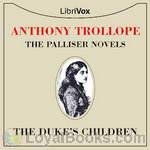 The Duke's Children
The Duke's Children
In the last of the six Palliser novels, the sudden death of his wife, Lady Glencora, leaves Plantagenet Palliser, the Duke of Omnium, finding himself in charge of his three children. The eldest, Lord Silverbridge, has recently been expelled from Oxford; his younger brother, Gerald, is about to enter Cambridge; and the youngest, nineteen-year old Lady Mary, has imprudently formed an attachment to Francis Tregear, who, while certainly a gentleman, unfortunately has no income. Before her death, Glencora knew (and approved) of her daughter's attachment; the Duke, however, does not know of it, and is not at all likely to approve... | |
 Doctor Thorne
Doctor Thorne
MANUAL OF SURGERY, OXFORD MEDICAL PUBLICATIONSBY ALEXIS THOMSON, F.R.C.S.Ed.PREFACE TO SIXTH EDITION Much has happened since this Manual was last revised, and many surgical lessons have been learned in the hard school of war. Some may yet have to be unlearned, and others have but little bearing on the problems presented to the civilian surgeon. Save in its broadest principles, the surgery of warfare is a thing apart from the general surgery of civil life, and the exhaustive literature now available on every aspect of it makes it unnecessary that it should receive detailed consideration in a manual for students... | |
 The Prime Minister
The Prime Minister
The Prime Minister is the fifth in Trollope's series of six Palliser novels. With Phineas' difficulties resolved, Trollope introduces new characters. A respectable young girl forsakes the man her family had always intended her to marry when she falls in love with a man of foreign extraction and an unknown family. He has a gentleman's education and manners, but his family background and financial means are mysterious. Is he really a gentleman? Meanwhile, Plantagenet Palliser becomes Prime Minister of a shaky coalition government, and Glencora and Madame Goessler are busy with the ensuing social obligations. | |
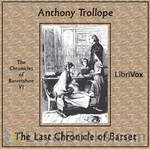 The Last Chronicle of Barset
The Last Chronicle of Barset
Both Trollope and some of his later critics have considered The Last Chronicle to be his greatest novel. Many of its characters are familiar from the earlier Barsetshire novels, including the Rev. Josiah Crawley, the impoverished curate of Hogglestock, whose alleged theft of £20, together with the efforts of many to clear up the mystery, lie here at the center. Central also is the trying courtship between Major Grantly and Grace Crawley, the clergyman's daughter, over the objections of the Major's parents, Archeacon Grantly and his wife; and the adventures of Johnny Eames, a protagonist of the Small House at Allington... | |
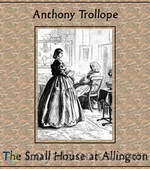 The Small House at Allington
The Small House at Allington
Fifth novel in the Barsetshire series, The Small House at Allington is largely focused on the Small House's inhabitants, Mrs. Dale and her two marriageable daughters, Lily and Bell. The two girls, of course, have suitors: their cousin, Bernard Dale, his friend Adolphus Crosbie, and the local boy, Johnny Eames, whose career in London is to mark him as far more than the "hobbledehoy" that he has earlier been considered. Crosbie is a social climber, and his connection with the dysfunctional de Courcys of Barsetshire give the author a chance for a splendid portrayal of an aristocratic family in decline... | |
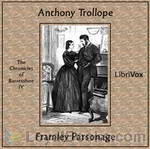 Framley Parsonage
Framley Parsonage
Framley Parsonage is the fourth novel in Anthony Trollope's series known as the "Chronicles of Barsetshire", first published in serial form in the Cornhill Magazine in 1860. "Of all novelists in any country, Trollope best understands the role of money. Compared with him even Balzac is a romantic." — W. H. Auden | |
 Orley Farm
Orley Farm
Orley Farm is Trollope at his best (as good as the Barsetshire series), which means some of the best characterizations in the English language. Trollope's people are real; the beleaguered Lady Mason, charged with forging a will; the aged lover Sir Peregrine Orme; Madeleine Stavely, deeply but practically in love; the shallow, fickle Sophia Furnival and others are 3-dimensional figures that live and breathe. His satire of the so-called "justice" system is the best kind of satire: he just describes the court proceedings as they really are. The result is as up-to-date as today's newspaper. (Introduction by Leonard Wilson) | |
 The American Senator
The American Senator
The American Senator is a novel written in 1875 by Anthony Trollope. Although not one of Trollope's better-known works, it is notable for its depictions of rural English life and for its many detailed fox hunting scenes. In its anti-heroine, Arabella Trefoil, it presents a scathing but ultimately sympathetic portrayal of a woman who has abandoned virtually all scruples in her quest for a husband. Through the eponymous Senator, Trollope offers comments on the irrational aspects of English life. (Description by Wikipedia) | |
 Miss Mackenzie
Miss Mackenzie
The thirty-five year-old (hence utterly over-the-hill) Miss Margaret Mackenzie, having devoted her life to others, suddenly finds herself with no one to care for, and in possession of a moderate fortune. Having money, she is now much sought-after and no longer universally deemed too old to marry. Partly because she has spent her life taking care of the brother whose money she has now inherited, she has no experience of wealth or popularity. Miss Mackenzie is the definition of “other-oriented. (Indeed, Trollope originally considered naming the novel, and his heroine, “Griselda”, presumably to invoke the folkloric character’s qualities of stolid obedience and endless patience... | |
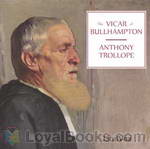 The Vicar of Bullhampton
The Vicar of Bullhampton
This little-known but engrossing Trollope novel, published in 1870, centers on a feisty small-town clergyman, his cantankerous neighbor, the miller, and the women in both their lives. A murder, a trial, a feud, a fallen woman, and a complicated romance are woven together in an exploration of the limits of our ability to truly do right when we involve ourselves in the lives of others, even with the best intentions. (Introduction by Angela Rowland) | |
 Lady Anna
Lady Anna
When it appeared in 1874, Lady Anna met with little success, and positively outraged the conservative - `This is the sort of thing the reading public will never stand...a man must be embittered by some violent present exasperation who can like such disruptions of social order as this.' (Saturday Review) - although Trollope himself considered it `the best novel I ever wrote! Very much! Quite far away above all others!!!'This tightly constructed and passionate study of enforced marriage in the world... | |
 The Three Clerks
The Three Clerks
The Three Clerks was Trollope’s sixth novel and was written mostly in railway carriages, since his work for the Post Office still entailed a good deal of travelling; to make life easier for himself, Trollope had devised what he called his ‘tablet’, a square block which he rested upon his knees in such a way that he could write in complete comfort. The story is drawn from his memories of his work (as a clerk) at the GPO in St Martin-le-Grand, and it is considered the most autobiographical of Trollope’s novels – a story of the differing fortunes of 3 young men working at “Weights and Measures” and their relationships with a family of 3 sisters. | |
By: Trollope, Anthony (1815-1882) | |
|---|---|
 Belton Estate, The
Belton Estate, The
Clara Amedroz is the virtuous, intelligent, and quick-witted heroine of this novel. Like all women of her time, she has few options other than to marry. She is lucky enough to have two eligible suitors, and chooses the more urbane and worldly of the two. Alas, however, she realizes fairly quickly that Captain Aylmer is not a nice person. Throughout much of the novel we find her trying hard not to recognize that Will Belton - the suitor she rejected, and who still loves and wants to marry her - is... | |
By: Anthony Trollope (1815-1882) | |
|---|---|
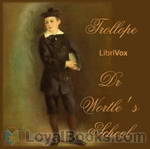 Doctor Wortle's School
Doctor Wortle's School
Anthony Trollope’s fortieth novel, published in 1881, concerns a respectable Christian boys’ school whose proprietor unknowingly hires a woman who apparently has two husbands: A devoted English scholar and an abusive drunkard from the American south. The book interweaves a sensitive and realistic exploration of Dr. Wortle’s moral dilemma with a humorous look at small-town gossip and--of course--a romance involving the doctor’s beautiful young daughter. ( | |
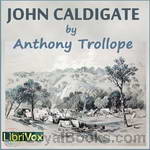 John Caldigate
John Caldigate
After a rather dissolute youth and having been disowned by his father, John Caldigate sets sail for Australia with his friend Dick Shand hoping to make his fortune in the goldfields in New South Wales. On the voyage, he meets Euphemia Smith and they conduct an indiscreet affair aboard. After various problems, Caldigate literally strikes gold and returns to Sydney where he meets Euphemia again and they settle, living as man and wife. After a time, they quarrel and Caldigate returns to England. On his return, Caldigate meets and marries a previous acquaintance, Hester Bolton, and they have a son... | |
 Is He Popenjoy ?
Is He Popenjoy ?
Trollope returns in Is He Popenjoy to two of his favorite subjects: property and inheritance. As in "Doctor Thorne," the issues are complicated by the specter of possible illegitimacy. Lord George Germain, a thoroughly respectable, upstanding, if not particularly bright younger son with new wife, rather expects to inherit a title, since his vicious and dissolute elder brother, the Marquis of Brotherton, who lives in Italy, shows no signs of settling down and producing heirs. Then comes a thunderbolt in the form of a letter from the Marquis suddenly claiming that he has, late in life, married an Italian widow and sired a son... | |
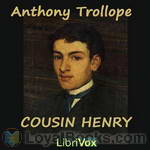 Cousin Henry
Cousin Henry
Indefer Jones struggles to name an heir to his estate. Will he choose his favorite niece, Isabel, or a male heir? The story turns on the trouble that arises when Indefer fails to tell anyone his final decision before passing away. | |
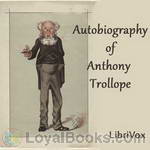 Autobiography of Anthony Trollope
Autobiography of Anthony Trollope
Anthony Trollope's autobiography will delight you whether or not you've read (or listened to) any of his many works. His honest if self-deprecating tone is at times hilarious and at times piteously moving. His detailed descriptions of his writing process and his philosophy of writing as work rather than art are fascinating. Fans of Trollope will enjoy learning the man's perceptions of his novels' shortcomings and triumphs. Anyone will appreciate learning about his years devoted to churning out literature for profit while working full time with the post office. | |
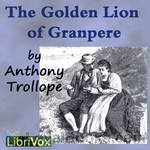 The Golden Lion of Granpere
The Golden Lion of Granpere
Time to do a short Continental trip with Trollope and see if we agree with Walpole. "...not only Trollope's very best shorter book, but one of the most charming idylls in English literature. - . . It has all the colour and richness and cohesion of something done irresistibly." -Walpole . The storyline is simple - boy meets girl - parents object - trials and tribulations follow - and then the story reaches it's conclusion - but you will need to find what that is for yourself ! | |
 Mr Scarborough's Family
Mr Scarborough's Family
MR SCARBOROUGH, wealthy owner of Tretton Park in Staffordshire, is dying. His eldest son and heir Mountjoy has gambled away his inheritance to avaricious money-lenders who hold post-obits to the entire value of the estate.Then Mr. Scarborough declares Mountjoy illegitimate. He claims that he only married his wife shortly before the birth of his second son Augustus, thus making him the real heir. Is this the truth ? - or a ploy to save the estate falling into the hands of some rather shady money lenders ? ....... | |
 Castle Richmond
Castle Richmond
| |
 Kept in the Dark
Kept in the Dark
Kept in the Dark is a novel by the 19th century English novelist Anthony Trollope. It was published in eight monthly installments in 1882, and also in book form in the same year. Cecilia Holt ends her engagement to Sir Francis Geraldine because of his indifference to her; she goes abroad and meets Mr George Western, who has been jilted by a beautiful girl. They marry but she does not tell him she has been previously engaged, although he has told her his story. When Western is informed of the previous engagement by Sir Francis, Western leaves his wife and goes abroad; she returns to Exeter to live with her mother... | |
 Aaron Trow
Aaron Trow
What is it like to be a fox hunted by hounds? We find out through the senses of an escaped convict as he struggles to free himself from would-be captors. The struggle is brutal. In the end, we are left wondering which person really wins--the pursued or the pursuer. Or perhaps which one is now the pursuer, which the pursued. | |
 An Old Man's Love
An Old Man's Love
This was Trollope's last completed novel, and he may have acquired his sympathy for older lovers with age! A not-so-very-old man, Mr. Whittlestaff, dearly loves Mary Lawrie, the girl he provides a home for after her father's death. He wishes to marry her, and she reluctantly accepts him, but warns him of her deep regard for a young man she had known years earlier. That Mr. Gordon had not exactly engaged her, but had gone off to seek his fortune and had not communicated with Mary ever since. Shortly after Mary accepts Mr. Whittlestaff, Gordon shows up. Trollope works out a final arrangement which resolves the quandary, but not with comfort. (Arnold Banner) | |
 Macdermots of Ballycloran
Macdermots of Ballycloran
This is the story of the Macdermots of Ballycloran the story is about the tragic demise of a landowning family. Larry Macdermot lives in a dilapidated mansion in Co. Leitrim, whose mortgage to Joe Flannelly he cannot keep up. Enmity between the Macdermot and Flannelly families is sharpened by son Thady's having declined to marry Joe Flannelly's daughter, Sally. Macdermot's daughter, Feemy, is herself seduced by the locally hated English police officer, Captain Myles Ussher. This was Trollope's first published novel, which he began in September 1843 and completed by June 1845. However, it was not published until 1847. | |
 Marion Fay
Marion Fay
Marion Fay (1882) offers a pair of romances, each involving a match between one titled personage and one commoner. The misalliances lead to the typical strains between parental desires and romantic wishes of the young. The novel’s primary characters have such noble dispositions that Trollope was impelled to create several far more interesting minor characters who either threaten mayhem or provide amusing diversions. | |
 Struggles of Brown, Jones, and Robinson
Struggles of Brown, Jones, and Robinson
Billed as a satire concerning the dishonest advertising and business practices of the day, it tells the tale of an upstart clothing business doomed from the get-go to utter failure. Its senior partner (the elderly Brown, who provides the investment) is far too timid for business. His son-in-law (Jones, who runs the store) is stealing from the till, and the junior partner, Robinson (who writes advertisements for the store) is so obsessed with the idea that advertising alone will drive the business, he uses up every last penny of the capital investment in a series of increasingly ludicrous ad campaigns and publicity stunts... | |
 Ralph the Heir
Ralph the Heir
As usual, Trollope creates a nice variety of characters of different English classes, sentiments and positions. The primary themes are the inheritance of property, extravagance or reason in the spending of assets, the mating of young people, and the electoral practices of the time. The election chapters are based on Trollope's own experiences when he ran for Parliament.There are, of course, many subplots which allow Trollope to express, through dialog, his opinions about greed, snobbery, work ethics and dandyism... | |
 Nina Balatka
Nina Balatka
A romance set in Prague between a Catholic and a Jew. In this short novel, Trollope moves away from his usual milieu to explore a theme which has universal resonance. | |
By: Fyodor Dostoyevsky (1821-1881) | |
|---|---|
 Crime and Punishment
Crime and Punishment
A mysterious crime is being plotted in a tiny garret above a dilapidated apartment building in St Petersburg in Russia. The plotter, Rodion Raskolinikov, is a poor student who has delusions of ridding the world of “worthless vermin” and counter balancing these crimes with good deeds. He commits a murder to test his own theories and prove that crime comes naturally to the human species. Crime and Punishment is a path-breaking novel of ideas that changed the course of novel writing in the 20th century... | |
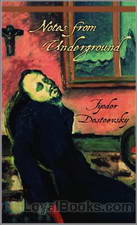 Notes from the Underground
Notes from the Underground
One of the earliest polished examples of existential literature, Notes from the Underground follows the life of a recluse and depicts his antagonistic attitude toward society. Written in two parts with a first person narration, the novella explores various themes expressing the misleading notion of rationalism and utopianism, existentialism, alienation and human inaction. The psychological novel begins with a monologue in which the protagonist introduces and characterizes himself. Referred... | |
 The Brothers Karamazov
The Brothers Karamazov
Set in 19th century Russia, The Brothers Karamazov (Russian: Братья Карамазовы) is the last novel written by the illustrious author Fyodor Dostoyevsky who died a few months before the book's publication. The deeply philosophical and passionate novel tells the story of Fyodor Karamazov, an immoral debauch whose sole aim in life is the acquisition of wealth. Twice married, he has three sons whose welfare and upbringing, he cares nothing about. At the beginning of the story, Dimitri Karamazov, the eldest son who is now a twenty-eight year old war veteran, returns to his home town to claim the inheritance left to him by his dead mother... | |
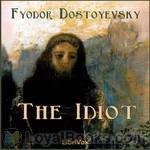 The Idiot
The Idiot
The extraordinary child-adult Prince Myshkin, confined for several years in a Swiss sanatorium suffering from severe epilepsy, returns to Russia to claim his inheritance and to find a place in healthy human society.The teeming St Petersburg community he enters is far from receptive to an innocent like himself, despite some early successes and relentless pursuit by grotesque fortune-hunters. His naive gaucheries give rise to extreme reactions among his new acquaintance, ranging from anguished protectiveness to mockery and contempt... | |
 The Gambler
The Gambler
The Gambler is a short novel by Fyodor Dostoevsky about a young tutor in the employment of a formerly wealthy Russian general. The novella reflects Dostoevsky's own addiction to roulette, which was in more ways than one the inspiration for the book: Dostoevsky completed the novella under a strict deadline so he could pay off gambling debts. | |
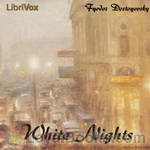 White Nights & Other Stories
White Nights & Other Stories
White Nights and Other Stories by Fyodor Dostoyevsky is a compilation published in 1918 by The MacMillan Company, NY (USA) and Heinemann (UK). It contains these 7 works:- White Nights- Notes from the Underground- A Faint Heart- A Christmas Tree and a Wedding- Polzunkov- A Little Hero- Mr. Prohartchin | |
 Possessed
Possessed
| |
By: Edward M. Forster (1879-1970) | |
|---|---|
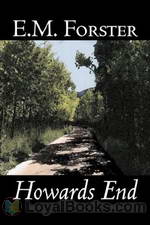 Howards End
Howards End
It's sad, but true to say that today Edward Morgan Forster's works are known more from their film and television adaptations rather than from their original novels. Yet, these adaptations have spurred many a fascinated viewer into going back to the library and finding the book that the film or miniseries was based on and this is ultimately the power of Forster's literary appeal. Howard's End was published in 1910 and it marked Forster's first taste of critical and commercial success. He had published three other novels earlier, Where Angels Fear To Tread (1905), The Longest Journey (1907) and A Room With a View (1908) but none of them had been received with so much acclaim... | |
 A Room With a View
A Room With a View
A Room With a View opens with Two Englishwomen touring Europe. The older one is poor, bossy, old fashioned and a great upholder of what is “proper.” The younger one is less certain of herself, but holds within her the makings of a passionate, emotional and independent woman. In Florence they are allotted a room overlooking a dull courtyard, whereas they had specifically asked for a “view.” A fellow guest offers them his own rooms which offer wonderful vistas of the Arno. The older woman instead of appreciating his courtesy, sees this as a breach of propriety... | |
 Where Angels Fear to Tread
Where Angels Fear to Tread
On a journey to Tuscany with her young friend and traveling companion Caroline Abbott, widowed Lilia Herriton falls in love with both Italy and a handsome Italian much younger than herself, and decides to stay. Furious, her dead husband’s family send Lilia’s brother-in-law to Italy to prevent a misalliance, but he arrives too late. Lilia marries the Italian and in due course becomes pregnant again. When she dies giving birth to her child, the Herritons consider it both their right and their duty to travel to Monteriano to obtain custody of the infant so that he can be raised as an Englishman. | |
 The Machine Stops
The Machine Stops
"The Machine Stops" is a science fiction short story by E. M. Forster. After initial publication in The Oxford and Cambridge Review (November 1909), the story was republished in Forster's The Eternal Moment and Other Stories in 1928. After being voted one of the best novellas up to 1965, it was included that same year in the populist anthology Modern Short Stories. The story describes a world in which most of the human population has lost the ability to live on the surface of the Earth. Each individual now lives in isolation below ground in a standard 'cell', with all bodily and spiritual needs met by the omnipotent, global Machine. | |
 The Longest Journey
The Longest Journey
Frederick Elliot is a student at early 20th century Cambridge, a university that seems like paradise to him, amongst bright if cynical companions, when he receives a visit from two friends, an engaged young woman, Agnes Pembroke, and her older brother, Herbert. The Pembrokes are Rickie’s only friends from home. An orphan who grew up living with cousins, he was sent to a public (boarding) school where he was shunned and bullied because of his lame foot, an inherited weakness, and frail body. Agnes, as it happens, is engaged to Gerald, now in the army, who was one of the sturdy youths who bullied Rickie at school... | |
By: William Patten (1868-1946) | |
|---|---|
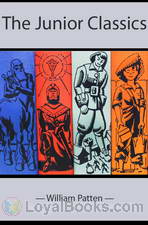 The Junior Classics
The Junior Classics
The purpose of The Junior Classics is to provide, in ten volumes containing about five thousand pages, a classified collection of tales, stories, and poems, both ancient and modern, suitable for boys and girls of from six to sixteen years of age. | |
By: Various | |
|---|---|
 International Short Stories Volume 1: American Stories
International Short Stories Volume 1: American Stories
The first volume of a 3 volume anthology, this work focuses on American short stories and draws from Nathaniel Hawthorne, Anna Katherine Greene, James Fenimore Cooper, Edgar Allan Poe and many other favorites. Topics range from historical to science fiction, melodramatic to philosophic. | |
By: Niccolò Machiavelli (1469-1527) | |
|---|---|
 The Prince
The Prince
Machiavelli has created a ruthless guide on how to rule the country in his volume "The Prince". The book is dedicated to Lorenzo De Medici, the ruler of Florence. The author explains in simple language about the nature of great men and the characters of the government. The first chapter gives an outline of the book discussing various styles of ruling as a prince, character traits that a ruler should have and the political situation of Italy in the 16th century. The book is composed of 26 chapters which fall into four major sections... | |
 History of Florence and of the Affairs of Italy
History of Florence and of the Affairs of Italy
History of Florence and of the Affairs of Italy is an historical account by Niccolò Machiavelli. Toward the end of 1520, the Cardinal Giulio of Medici, later Pope Clement VII, offered Machiavelli the appointment to write a history of Florence. Although Machiavelli was reluctant to accept, accepting was his only way to regain the good graces of the Medici who had regained power and were in a position to offer him employment and protection. Doing the history also provided a way for Machiavelli’s views to become the “official” history of Florentine and Italian affairs. Once completed, the work was presented officially to Giulio, now Pope, in May of 1526. | |
By: James Allen (1864-1912) | |
|---|---|
 Above Life's Turmoil
Above Life's Turmoil
Combining elements of Christianity, Buddhism and Hinduism with concepts dealing with self discipline, motivation and the power of positive thinking, James Allen's 1910 inspirational book Above Life's Turmoil is a pioneering work in self-help literature. One of the factors that makes the book appealing is that it doesn't purport to be a magic formula that will help you to get whatever you want. Instead, it aims to give the reader self knowledge and self conquest which will ultimately lead to inner peace in a turbulent world... | |
 As a Man Thinketh
As a Man Thinketh
“A man is literally what he thinks, his character being the complete sum of all his thoughts,” is one of the quotes from James Allen's classic self help books, As a Man Thinketh. Published in 1902, it provides many more such insightful concepts on the power of thought and its effect on a human being's personality and behavior. This volume is more of a literary essay than a complete book and its title is based on a Biblical proverb, “As a man thinketh in his heart, so is he.” Taking this piece of ancient wisdom further, James Allen explores the far-reaching effects of the inner workings of a person's mind and motivation... | |
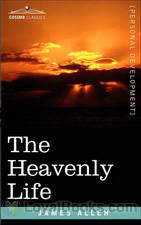 The Heavenly Life
The Heavenly Life
Many of us live with the belief that we can achieve heaven or the ultimate peace and happiness only in an after-life. Many of us believe that heaven is a place that is far removed from earth. However, The Heavenly Life by James Allen seeks to convince us that heaven and hell are both here on earth and they lie within our own selves. A deeply moving, insightful and philosophical book that explores the ideas of living with integrity, in harmony with our fellows and in finding the power of love and integrity, The Heavenly Life was first published in 1903... | |
 The Mastery of Destiny
The Mastery of Destiny
James Allen’s inspirational and thought-provoking books have inspired millions. In The Mastery of Destiny, he instructs readers on developing self-control, willpower, concentration, and motivation. Through mental discipline, we can create a life of unending happiness, prosperity, and, most importantly, self-mastery. | |
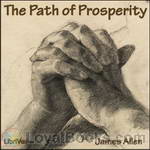 The Path of Prosperity
The Path of Prosperity
Summary from The Path of Prosperity: I looked around upon the world, and saw that it was shadowed by sorrow and scorched by the fierce fires of suffering. And I looked for the cause. I looked around, but could not find it; I looked in books, but could not find it; I looked within, and found there both the cause and the self-made nature of that cause. I looked again, and deeper, and found the remedy. I found one Law, the Law of Love; one Life, the Life of adjustment to that Law; one Truth, the truth of a conquered mind and a quiet and obedient heart... | |